Board of Directors
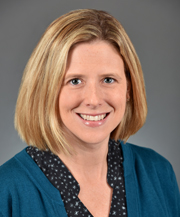
Kira Dies, ScM, CGC
Executive Director at Rosamund Stone Zander Translational Neuroscience Center, Boston Children's Hospital. Kira is a licensed genetic counselor at Boston Children's Hospital. She has a deep understanding of the underlying genetics of neurodegenerative diseases like HSP. She manages multi-site clinical trial for neurogenetic conditions including tuberous sclerosis complex, Rett syndrome, and PTEN hamartoma syndrome.

Kevin Duffy
Head Golf Professional, Riverton Country Club. Kevin is Molly Duffy's father. He has been working in the golf industry for more than 15 years and is currently responsible for leading the golf operation at Riverton CC from both an operational and strategic level. His areas of expertise include marketing, relationship management, customer service, team building and coaching.

Chris Edwards
President, Cure AP-4. Chris is Robbie Edwards' father. He has founded a series of startup companies during his career. He has extensive experience in building/managing teams with diverse skills sets, and with navigating complex governmental regulations and problem solving.

Erika M. Gill, MBA
Vice President / Head of Neuroscience Global Product and Launch Strategy, Takeda Pharmaceuticals. Erika has over 20 years of experience in health care and biotech, leading several cross-functional areas including program management, patient services and education, marketing and health care administration across multiple disease areas.
Community Relations Coordinator
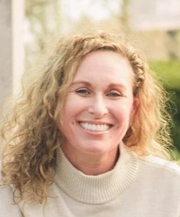
Kasey Edwards
Community Relations Coordinator, Cure AP-4. Kasey utilizes meaningful research-centered communications and patient-community engagement to drive therapeutic and resource discovery to enhance the quality of life for AP-4-HSP patients and patient families.
AP-4 Research Community
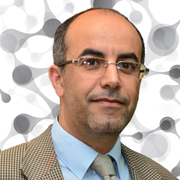
Dr. Mimoun Azzouz
Chair of Translational Neuroscience, ERC Advanced Investigator, Director of Research and Innovation, University of Sheffield. Dr. Azzouz has a long-standing interest in developing gene therapy approaches for neurodegenerative diseases. His team utilizes viral-based gene transfer systems both for research and gene therapy applications.
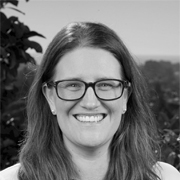
Samantha Baxter
Licensed genetic counselor and Associate Director of Genetic and Genomic Data Sharing at the Broad Institute of MIT and Harvard. As part of her Cure AP-4 research, Samantha leads a team of variant curators who use various data sources and curation processes to estimate the prevalence of rare disease in the global population. She also has a personal interest in helping patient- and family-led organizations harness the power of genomic data to help advance their mission.

James T. Bennett, MD, PhD
Pediatric Geneticist, Seattle Children's Hospital Genetics Care Team, Associate Editor American Journal of Medical Genetics. Dr. Bennett is board certified in Clinical Molecular Genetics. He has initiated a project of collecting and reporting pertinent medical information for known SPG47 patients.

Dr. Craig Blackstone
Senior Investigator, Cell Biology Section, National Institute of Neurological Disorders and Stroke, NIH. Dr. Blackstone's laboratory investigates the cellular and molecular mechanisms underlying hereditary movement disorders. Craig is one of the most prominent HSP researchers in the world.
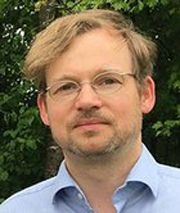
Georg Borner, PhD
Max Planck Institute of Biochemistry Group Leader. Dr. Borner is investigating the molecular details of AP-4 deficiency syndrome. His lab recently uncovered a direct link between AP-4 mediated transport and the spatial control of autophagy, via sorting of the core autophagy machinery protein ATG9A, providing a potential mechanism for AP-4 pathology.

Dr. Basil Darras
Associate Neurologist-in-Chief, Chief-Division of Clinical Neurology, Director- Neuromuscular Center, Boston Children's Hospital. Dr. Darras' research is focused on the molecular genetics, diagnostics and therapeutics of pediatric neuromuscular diseases.
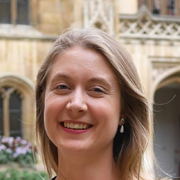
Alexandra Davies, PhD
Marie Skłodowska-Curie Fellow at the Max Planck Institute of Biochemistry, Germany. Dr. Davies' research focuses on understanding cellular mechanisms of rare neurological disorders and she has worked on AP-4 deficiency syndrome since 2014. Her PhD work identified the core autophagy protein ATG9A as a cargo of the AP-4 vesicle pathway and her postdoctoral work has uncovered a role for AP-4 vesicle trafficking in the spatial control of endocannabinoid signalling. Dr. Davies works in the Borner lab and collaborates closely with Dr. Ebrahimi-Fakhari to ensure that cellular phenotypes are rapidly translated into discovery tools to help identify novel treatments for AP-4 deficiency syndrome.

Darius Ebrahimi-Fakhari, MD, PhD
Resident physician in the combined Pediatrics & Child Neurology Program at Boston Children's Hospital / Harvard Medical School. Darius works at the Department of Neurology, Boston Children's Hospital. His group does research in Neurology, Neuroscience, and Cell Biology. Their current projects include "Development Of An In Vitro Model Of SPG47-Associated Hereditary Spastic Paraplegia Using Patient iPSC-Derived Neurons To Support Unbiased Screening Of Novel Therapeutic Approaches To Treatment", and "An International Registry and Natural History Study For AP-4-associated Hereditary Spastic Paraplegia".

Dr. John Fink
Professor, Department of Neurology, Director, Neurogenetic Disorders Program, University of Michigan. In addition to being one of the world's foremost investigators of upper motor neuron disorders, Dr. Fink also maintains the largest clinic in the U.S. for persons with HSP or PLS.

Dr. Steven Gray
Associate Professor at UT Southwestern Medical Center. Dr. Gray's core research focus is to develop adeno-associated virus (AAV) gene transfer vector systems, for clinically-relevant global gene transfer to the central and peripheral nervous system.
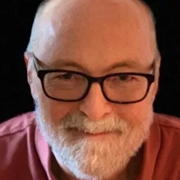
Neil Hackett, PhD
Independent Consultant. Neil Hackett has extensive experience in pre-clinical and translational gene therapy programs. He advises on many areas including study design and regulatory filings. His background includes professorial appointments at Vanderbilt University and Weill-Cornell Medical College resulting in over 100 academic publications.

Dr. Jennifer Hirst
Principal Research Associate, Robinson lab, Cambridge Institute for Medical Research. Dr. Hirst is a cell biologist who discovered the AP-4 and AP-5 adaptor complexes and has been studying their function and link with Hereditary Spastic Paraplegia.

Robin Kleiman, PhD
Senior Director, Translational Cellular Sciences, Biogen. Dr. Kleiman's team within Research and Early Development is focused on establishing translatable human disease models of CNS disorders to enable testing of novel therapeutic molecules.

Paolo Marchi
PhD student in Prof. Azzouz Lab. My name is Paolo and I am a 3rd year PhD student in Neuroscience in the lab of Prof. Azzouz. My current scientific research focuses on the C9orf72 mutation, which is the most common genetic cause of Amyotrophic Lateral Sclerosis and Frontotemporal Dementia. I am also actively supporting our team's effort in the work on the AP-4 complex, by performing immunoblotting and immunohistochemistry analyses on AP-4 mouse model samples.
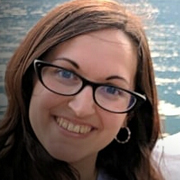
Lara Mallone
Prof. Azzouz Lab. For several years, I have been interested in dissecting the molecular mechanisms of neurodegeneration to identify potential treatments. My current research focuses on SPG15 and the AP-5 protein complex, but I am actively supporting our team’s work on the closely related AP-4 complex. Since both AP-4 and AP-5 are involved in vesicle trafficking and cause spastic paraplegia when lost, I believe that lessons learnt from one complex may be relevant for the other and help elucidate shared pathways underlying disease.

Richard Novak, PhD
CEO & Co-founder Unravel Biosciences. Richard Novak, Ph.D. is a bioengineer and entrepreneur dedicated to solving unanswerable questions through technology innovation. He has over 15 years of experience in microfluidic system development and applications in the therapeutic space.
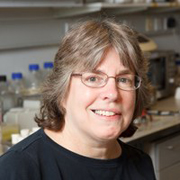
Professor Margaret (Scottie) Robinson
Principal Investigator, Cambridge Institute for Medical Research. Prof Robinson has worked on identifying and characterizing adaptor protein complexes for 30 years.
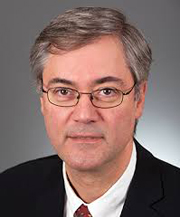
Mustafa Sahin, MD, PhD
Director, The Rosamund Stone Zander Translational Neuroscience Center, Professor in Neurology, Harvard Medical School. Dr. Sahin's lab investigates the normal cellular functions of signaling pathways implicated in neurological disease. His research is focused on proteins affected in TSC and SMA.

Sarah Sheikh, MD MSc MRCP
Senior Vice President, Neuroscience at Takeda. Sarah has held leadership positions of increasing responsibility in clinical development at Biogen and Celgene before joining Takeda as Senior Vice President of Neuroscience.
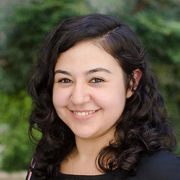
Moriel Singer-Berk
Clinical genomic variant curator at the Broad Institute of MIT and Harvard. As part of her Cure AP-4 research, she utilized ACMG criteria in the curation of known variation in AP4 genes, as well as performing an in depth curation for loss-of-function variants that are seen in the gnomAD database. These curation efforts were critical in estimating the prevalence of AP4 related disease in the global population. She was thrilled to be a small part of the team moving AP4 research forward.

Frederic Vigneault, PhD
CSO & Co-founder Unravel Biosciences. Frederic Vigenault, Ph.D. is a molecular biologist with a drive to tackle unmet patient needs.
